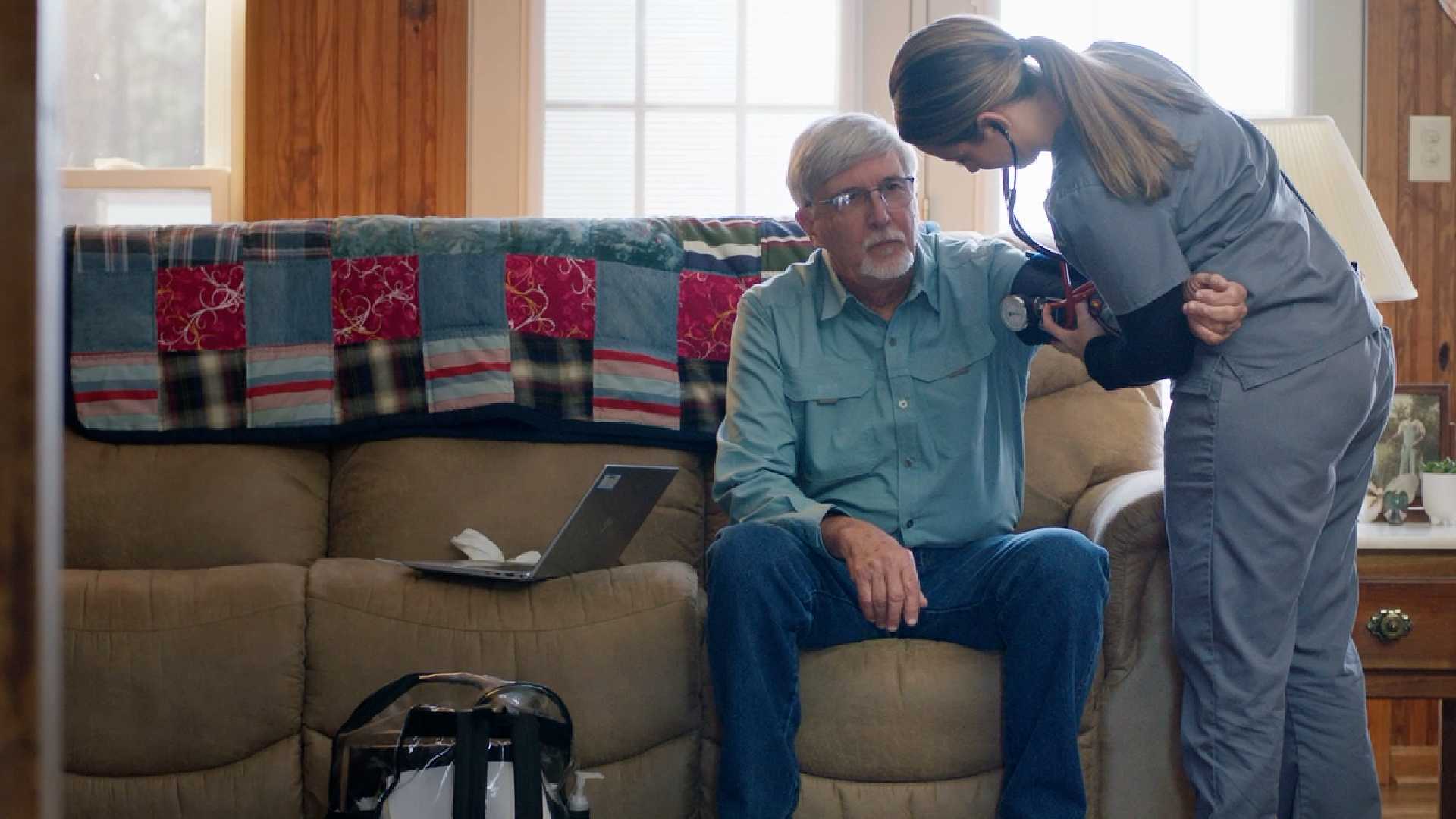| |
| |
| |
| Presented By UnitedHealthcare |
| |
| Axios Vitals |
| By Tina Reed · Jan 12, 2023 |
| Good morning, Vitals readers. Today's newsletter is 857 words or a 3-minute read. Situational awareness: The New York nurses strike, which began Monday morning, has come to an end after a tentative deal was reached with hospitals, CNN reports. |
| |
| |
| 1 big thing: The push for more in-home care options may come with risks |
 |
|
| Illustration: Aïda Amer/Axios |
| |
| The pandemic-fueled boom in home care could be replicating one of the most worrisome hazards in institutional settings: bloodstream infections from central lines. Driving the news: Home infusion therapy — whether for cancer drugs, antibiotics or other treatments — is becoming a preferred option for more patients. - But central line-associated bloodstream infections, known as CLASBIs, which cause thousands of deaths each year and are closely monitored in hospitals, aren't getting the same surveillance in the home, according to findings in the American Journal of Infection Control.
- It's more evidence of how hard it can be to balance convenience and safety as more health care services shift to the home, increasing the threat of medical errors, adverse events and infection risk.
What they're saying: "In hospitals, we have highly trained nurses that have ongoing continuing education on a very regular on how to prevent [central line infections] in their patients," said Sara Keller, associate professor in the division of infectious diseases at Johns Hopkins University and a co-author of the study. - But the survey of home infusion therapy nurses found little evidence of formal infection control training to track these infections.
The big picture: Home care of all stripes — including hospital-at-home — is expanding with the increased availability of remote patient monitoring and value-based care payment models. At its best, it can relieve overstressed health systems and better serve an aging population. - Home infusion therapy is becoming a particularly big business, with the National Home Infusion Association estimating roughly 3 million patients in the U.S. received treatment in 2019, a 300% jump from 2008.
- But despite promises of increased independence and savings, more research is needed to confirm benefits and safety considerations, per a study published in Transfusion Medicine Reviews in July.
Go deeper. |
    |
| |
| |
| 2. House passes first anti-abortion |
| House Republicans are wasting no time using their new majority to push through votes on abortion-related bills, Axios' Oriana Gonzalez reports. Driving the news: On Wednesday, the House passed a largely symbolic bill that would require health care providers to provide care to infants born after an attempted abortion. - The measure, which passed 220-210, has virtually no chance of passing the Democratic-controlled Senate.
Yes, but: Health providers are already required under law to act to provide medical services to any infant born at any gestational age. The House bill also penalizes the "intentional killing of a born-alive child," which is already illegal. What they're saying: "This bill is deliberately misleading and offensive to pregnant people and the doctors and nurses who provide their care," said Jacqueline Ayers, Planned Parenthood's senior vice president of policy, organizing and campaigns - March for Life president Jeanne Mancini called the bill "commonsense and compassionate."
Between the lines: Some House Republicans have questioned a strategy of pushing abortion restrictions early in the new session after the polling indicated the issue worked against the party in the midterms. What else happened: The House also voted in support of a resolution to condemn attacks on "pro-life facilities, groups, and churches." - The resolution also states that the House "recognizes the sanctity of life."
Read the rest. |
    |
| |
| |
| 3. Dems increase pressure on march-in rights |
 |
|
| Sen. Elizabeth Warren. Photo: Ting Shen/Bloomberg via Getty Images |
| |
| Lawmakers led by Sens. Elizabeth Warren and Angus King and Rep. Lloyd Doggett are pressing the Biden administration on taking control of patents of drugs developed with the government's backing, in order to lower prices, Axios' Caitlin Owens writes. Why it matters: Major drug pricing policies are going to come from the administration, not Congress, over the next two years. That leaves President Biden with some big decisions. State of play: The National Institutes of Health has been reviewing a petition to use so-called march-in rights to lower the price of Xtandi, an expensive prostate cancer drug. - Some Democrats are over the wait. "You have the power to take on the monopoly abuses of the pharmaceutical industry," the lawmakers wrote in a letter to HHS Secretary Xavier Becerra, dated Tuesday.
- The members also want HHS to hold a public hearing on the petition.
- Becerra last fall didn't rule out using the option.
The bottom line: The Biden administration will either make huge news by moving ahead with using march-in rights — the first time any administration has done so to lower drug prices — or it will risk seriously angering some important members of its own party. A version of this story was published first on Axios Pro. Get news like this by subscribing. Use code POLICY100 which gives you $100 off. |
    |
| |
| |
| A message from UnitedHealthcare |
| HouseCalls meet seniors in their homes |
| |
 |
| |
| Millions of Medicare Advantage seniors take advantage of UnitedHealthcare's free HouseCalls program. For Jack, a free, comprehensive wellness visit from HouseCalls nurse practitioner Heather helped save his life. Watch their story. |
| |
| |
| 4. Quote du jour: Gas stoves face some heat |
 |
|
| Illustration: Allie Carl/Axios |
| |
| "The President does not support banning gas stoves — and the Consumer Product Safety Commission, which is independent, is not banning gas stoves." — A statement from the White House after a Consumer Product Safety Commission official told Bloomberg a ban on gas stoves is "on the table" over health concerns. Mounting scientific evidence points to a link between indoor air pollution and gas stoves, Axios' Matt Phillips and Andrew Freedman report. |
    |
| |
| |
| 5. Catch up quick |
| 🗓 The Biden administration outlined its drug price negotiation plans. (Axios) 👀 Alphabet plans to cut staff of health sciences unit Verily by 15%. (CNBC) 📲 A new lawsuit is pushing an addiction case against social media firms. (Axios) 👉 Long COVID symptoms may ease within a year, a new study finds. (Axios) |
    |
| |
| |
| A message from UnitedHealthcare |
| HouseCalls can help identify and prevent health issues among seniors |
| |
 |
| |
| UnitedHealthcare's Medicare Advantage HouseCalls provide free, comprehensive wellness visits in the comfort of seniors' own homes. During visits, licensed clinicians spend up to an hour with seniors and follow up with their primary care providers to help address any health issues. Learn more. |
| |
| Did someone forward this email to you? Here's how to sign up. Thanks for reading, and thanks to senior editor Adriel Bettelheim and senior copy editor Bryan McBournie for the edits. |
 | | Your personal policy analyst is here. | | |
No comments:
Post a Comment